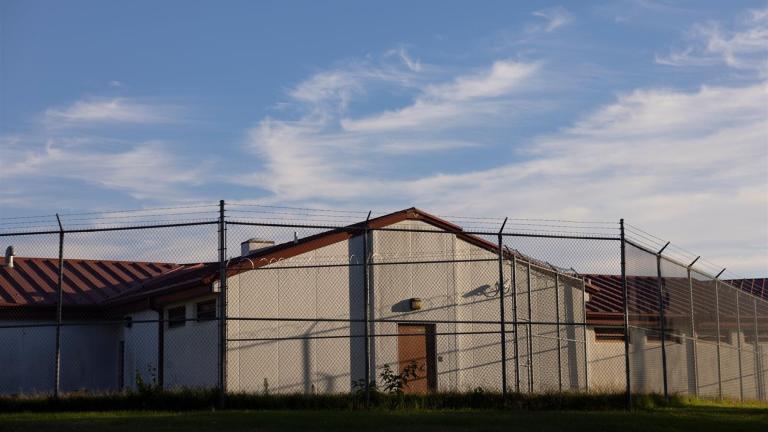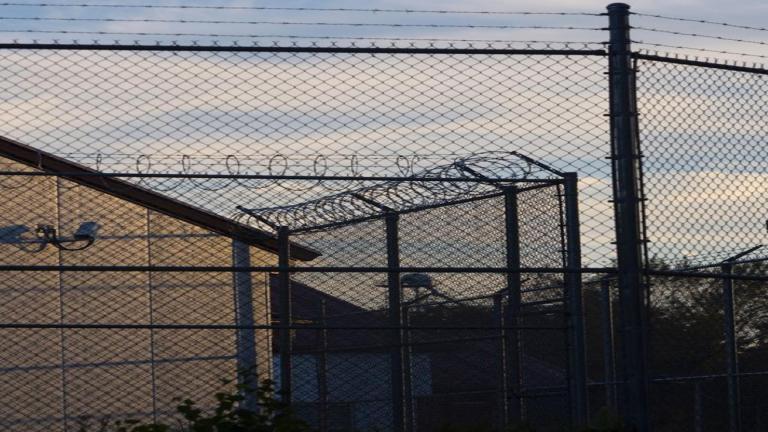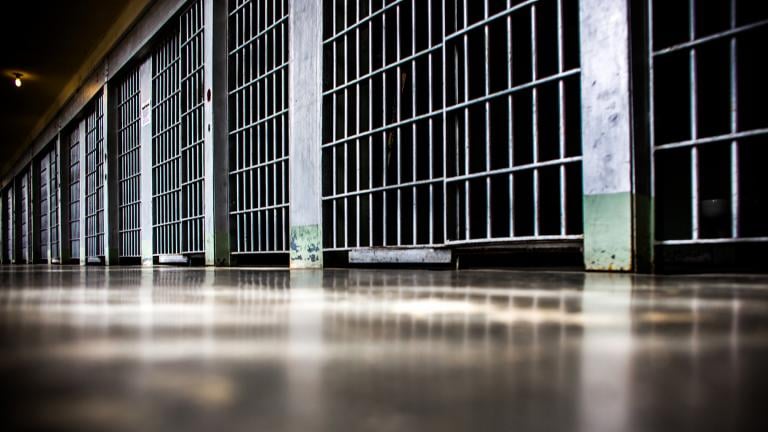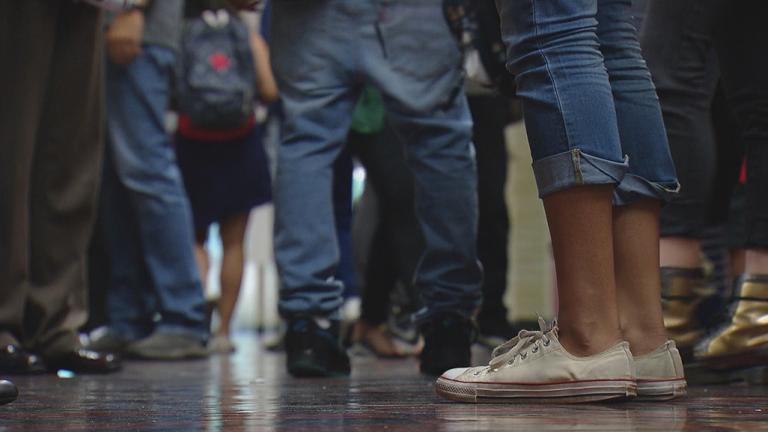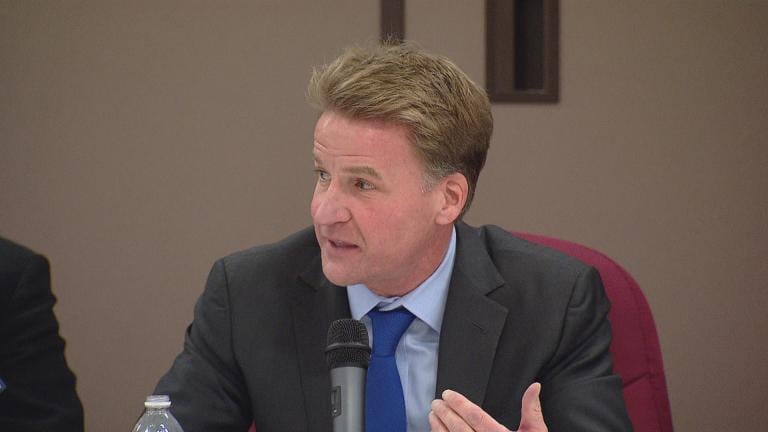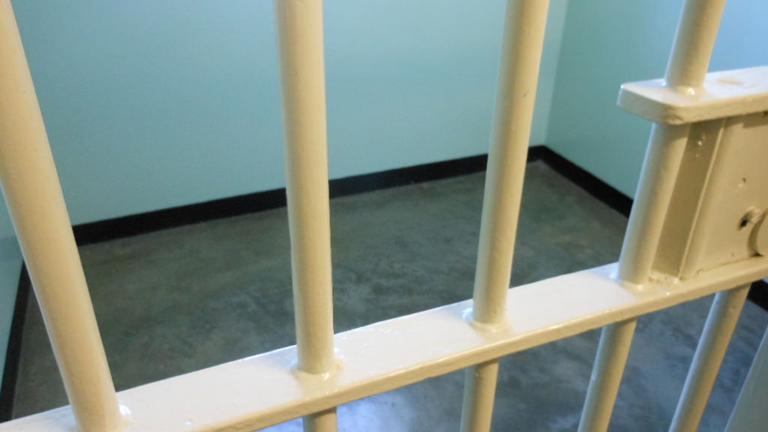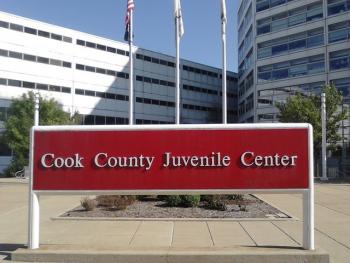 Cook County's Juvenile Detention Center is more about rehabilitation than incarceration. Most inmates are awaiting trial in juvenile court, and usually stay no longer than a month or two. They attend classes with a normal Chicago Public Schools curriculum. They're allowed to paint the walls of their rooms. They shoot hoops. And they all get personalized mental health evaluations.
Cook County's Juvenile Detention Center is more about rehabilitation than incarceration. Most inmates are awaiting trial in juvenile court, and usually stay no longer than a month or two. They attend classes with a normal Chicago Public Schools curriculum. They're allowed to paint the walls of their rooms. They shoot hoops. And they all get personalized mental health evaluations.
“We have mood disorders. They come in with substance abuse, major clinical symptoms, major depression, major anxiety disorders,” said psychiatrist Thaddeus Garlewski.
We joined Cook County Board President Toni Preckwinkle as she gave us a rare look inside the center. She was there to let residents know it'll get a little more crowded starting in January. That's when a new state law mandates 17-year-olds accused of many felonies be tried as juveniles. Up until now, they've been tried as adults and sent to prison. Preckwinkle says she pushed for the age change.
“The reason we have juvenile courts is because juveniles are not the same as adults,” said Preckwinkle. “They don't have the capacity to make intelligent choices and they don't make the same good judgment.”
“The longer that we keep kids in the juvenile system as opposed to the adult system is not only better for them but better for taxpayers in general,” said John Maki.
Maki runs the John Howard Association, a non-partisan prison watchdog group. He says the Department of Corrections should be focused on keeping kids from entering and re-entering the adult system.
“Prison tends to make, especially lower level offenders, younger people, worse,” said Maki. “And so, if we get a younger kid who's just involved, we need to do everything we can, everything in our power, to help that kid change. And the juvenile system is much better at that.”
But some critics say the change in law will come at the expense of public safety.
“The gangs are very complex, very aware of sentencing structures, and they'll allow 17-year-olds in the gang to commit crimes they would've been sent to adult correctional facilities for. It sends the wrong message,” said State Rep. Dennis Reboletti.
Reboletti is a Republican representative from Addison and a former prosecutor who opposed the state law.
“Prosecutors have the discretion to try cases based on the facts in front of them. I think we should trust them rather than have a law dictate that there's an imaginary cutoff,” he said.
Proponents say the new law will not apply to 17-year-olds who commit the worst offenses, like murder and aggravated battery.
Right now, there are 317 kids at the Juvenile Detention Center, with room for about 50-60 more. The problem is there are currently 177 17-year-olds in adult jail at 26th Street.
“All the 17-year-olds won't come in January 1; it'll be a succession of cases that come to the juvenile system,” said Preckwinkle. “That gives us some time to work through the issues.”
Preckwinkle says the new law will cost the county $10 million a year. But, she says it can be less, if judges choose to send some of the least dangerous offenders who have only a short time to wait for trial. Currently, 40 percent of the center's population stays for less than a week.
“Why would you send someone here for a week or less? Why not let them go home? Are they really a threat to their family or society if they’re only going to be here for a week or less?” she said.
If convicted of their crimes, youth offenders 17 and under will be sent to state-run Illinois Youth Centers. Preckwinkle and the John Howard Association say the law will eventually allow kids up to the age of 21 to be tried in the youth system.
17-year-olds charged with misdemeanors are already tried and incarcerated through the juvenile system. And some kids as old as 19 years old await trial at the Juvenile Center already, if a judge deems the case is less severe. Last year, we examined some of the community homes that are starting to take on more juvenile offenders. Read that story here. Preckwinkle says she hopes to one day close the detention center, and send all youth offenders a community home.

